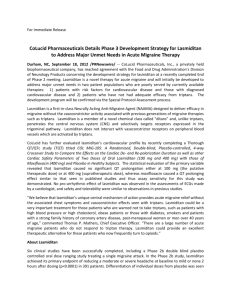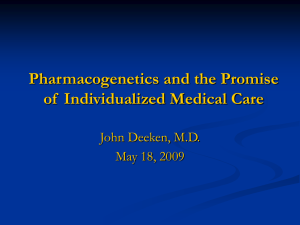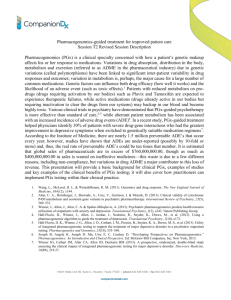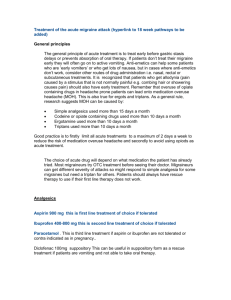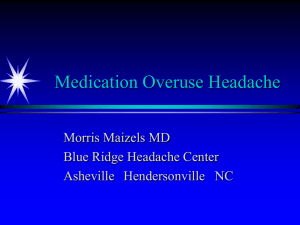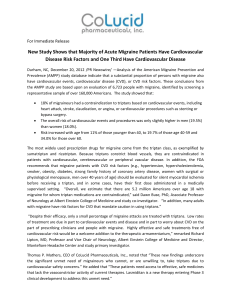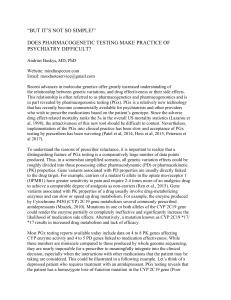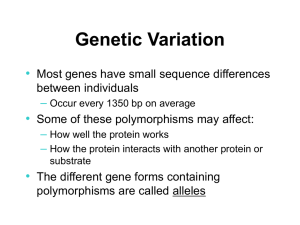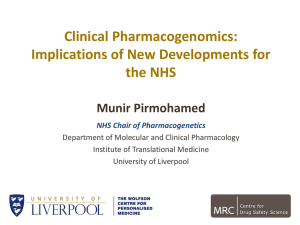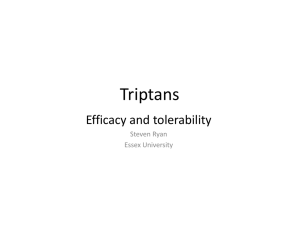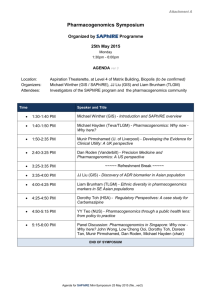Presentazione standard di PowerPoint
advertisement
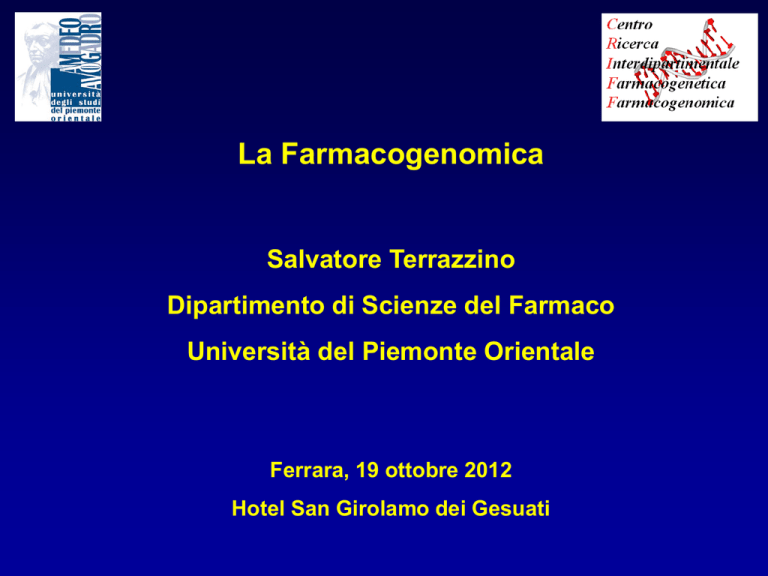
La Farmacogenomica Salvatore Terrazzino Dipartimento di Scienze del Farmaco Università del Piemonte Orientale Ferrara, 19 ottobre 2012 Hotel San Girolamo dei Gesuati “One Size Doesn't Fit All” Pharmacogenomics Pharmacogenomics includes Pharmacogenetics Identifying genes influencing polygenic drug responses Evans and Relling, Nature 2004 Genetic Polymorphisms Every gene contains some degree of polymorphism: Base substitution, deletion or insertion SNPs occurr every 100-300 base pairs throughout the genome May be in coding or non-coding region May alter amino acid (non-synonymous) or not (synonymous) Polymorphisms can occur in: Genes involved in drug pharmacokinetics that impact drug absorption, distribution, metabolism, and excretion Drug targets (including cell surface receptors and target proteins) Hormonal-regulated enzymes Genetic polymorphisms can lead to enzyme products with: abolished activity (gene deletions, premature stop codons, deleterious amino acid changes, exon skipping, abolished transcriptional start sites) reduced or altered activity (promoter SNPs, minor AA substitutions, regulatory SNPs, VNTRs) increased activity (overexpression due to gene duplication) The Abacavir Example HLA-B*5701 Presence According to Patch test Prospective Randomized Trial of HLA-B*5701 Screening (PREDICT-1) WARFARIN Regression equation for modeling warfarin daily dose requirements based on age, genotype, and height Sconce EA, et al. Blood 106: 2329-2333, 2005 TRIPTANS: 5-HT1B/1D RECEPTOR AGONISTS Triptans provide: Rapid onset of action High efficacy Favorable side effect profile Approximately 25% of all migraine users and 40% of all attacks do not respond to triptan treatment Triptan non-responders • • • • • Not able to treat early Low and inconsistent oral absorption Unrecognized analgesic overuse Medical and psychiatric co-morbidities 5-HT1B/1D receptor polymorphisms ? Lack of association with common polymorphisms of 5-HT1B receptor gene and triptan response in migraine patients Velati D., Genazzani AA et al., Eur J Pharmacol. 2008; 580:43-47 Metabolic pathways involved in the metabolism of triptans COMT val158met polymorphism affects headache response to triptans I cohort: MwoA patients and response to frovatriptan II cohort: migraine patients and response to other triptans Terrazzino et al., in preparation Potential benefits of Pharmacogenomics in the drug development process – Identification of new drug targets – Reduction of sample size and simplification of clinical trials – Decrease in discontinuation of clinical trials due to unexpected ADRs – Rise in rate of successful drug development – Time for drug approval …and in the clinical practice – Earlier identification and selection of responder/non responder patients –Estimation of dose optimal for particular patient based on genomic information – Number of adverse drug reactions – Number of medications to find effective therapy – Decrease in the overall cost of Health Care Challenges for clinical implementation of Pharmacogenomics • Providing scientific evidence for improvement in patient care by PGx testing • Providing data on diagnostic test criteria of PGx testing (sensitivity, specificity, PPV, NPV, R2) • Providing informations on cost-effectiveness of PGx testing • Developing guidelines directing the clinical use of PGx test results • Improving education of healthcare professionals • Counseling services associated with genetic information Predictive Medicine and Personalised therapy “the right drug at the right dose in the right patient at the right time”
